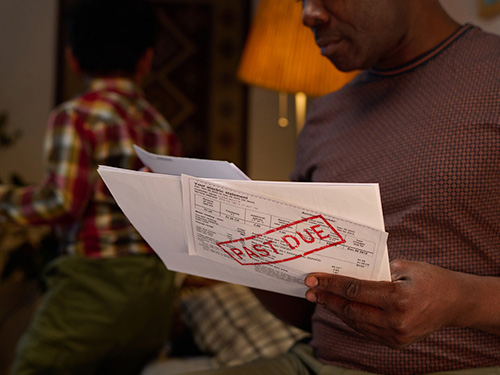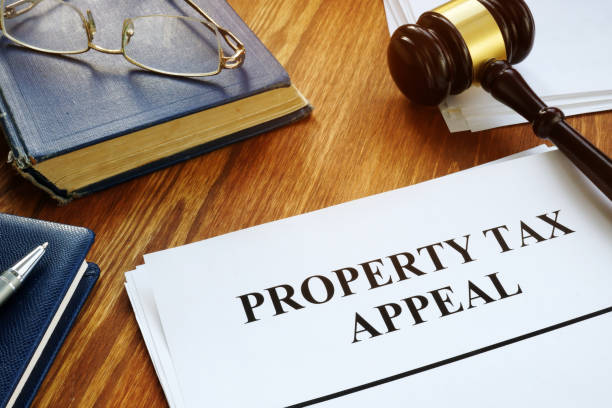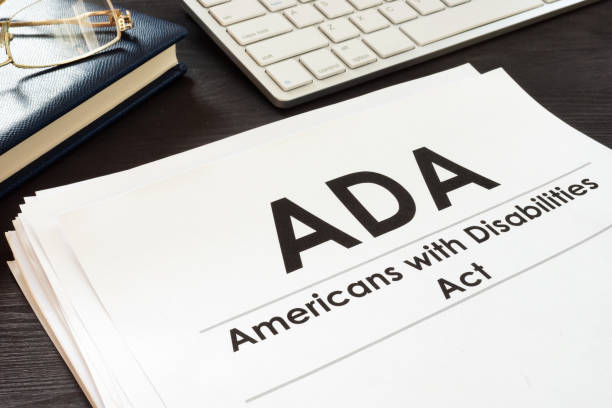
Starting a New Business in Maryland
The beginning of a new year is a popular time to launch a business. Whether you’re expanding on an existing idea or starting from scratch, the early planning stages involve many exciting decisions. But it’s important not to overlook the legal groundwork of starting a new business. A solid legal foundation can save you significant time, money, and stress if issues arise later. As you map out your next steps, here are key considerations:
1. Choose the Right Business Structure
Maryland offers several options, each with different liability and tax implications:
- LLCs – The most common for small and mid-size businesses. Popular because it may shield individuals from personal liability.
- Corporations – Better for companies seeking investors or issuing stock.
- Sole Proprietorships/Partnerships – Easy to set up, but offers little to no personal liability protection.
Filing with the Maryland Department of Assessments and Taxation (SDAT) is only the first step when starting your new business. The structure you choose affects ownership rights, management, and how disputes will be handled later on.
2. Don’t Skip the Operating Agreement
An LLC without a written operating agreement is vulnerable. Maryland law recognizes these agreements, and courts rely heavily on them during disputes.
Your LLC operating agreement should clarify:
- Ownership percentages
- Voting and decision-making
- Profit distribution
- Buy-out provisions
- What happens if owners disagree or someone leaves
Many lawsuits arise from businesses formed with handshake agreements or online templates. A tailored operating agreement may significantly reduce that risk. If your company is structured as a corporation, then it is required to have written bylaws.
3. Use Clear, Written Contracts
Every business relationship should be documented: vendors, contractors, employees, and partners. Written contracts protect expectations and reduce misunderstandings.
Important terms include:
- Payment and deadlines
- Scope of work
- Termination rights
- Venue and dispute-resolution language
- Intellectual property and confidentiality
Even simple agreements help prevent disputes and protect your rights if one occurs.
4. Keep Good Records From Day One
New businesses often overlook evidence preservation, but maintaining good records can help resolve problems if a dispute arises later.
Build good habits early:
- Use accounting software
- Keep receipts, emails, and contracts organized
- Store digital records securely
- Have a document-retention policy
Strong record-keeping makes your business more efficient and better protected.
Whether you are just starting to form your business or are already in the thick of running it, Lewicky, O’Connor, Hunt, and Meiser has a team of experienced business attorneys who can assist you both in preventing problems before they arise and in navigating issues when they do. Schedule your consultation today for help keeping you and your business on track.
Disclaimer: Any questions regarding tax obligations, consequences, or planning should be directed to a qualified tax attorney, accountant, or other licensed tax professional. This article does not provide detailed or comprehensive information about taxation matters.

Expert Witnesses in Litigation
When pursuing a civil lawsuit, there may be times when it is critical to have an expert witness testify on your behalf. An expert witness is someone with specialized knowledge, training, or experience in a particular field who can help the court understand complex issues. The type of expert you may need depends on your case and the facts you’re trying to prove (or the defenses you’re asserting). Here are just a few examples of disputes and the types of expert witnesses often called upon:
Business Dispute
In a business dispute, parties might rely on business valuation experts or forensic accountants to explain financial records, assess damages, or determine fair market value.
Personal Injury Case
In personal injury cases, experts may include medical professionals, accident reconstructionists, or physical therapists.
Family or Divorce Litigation
In family or divorce litigation, attorneys often work with vocational experts or pension valuators to clarify income potential or asset division.
Each case is unique, and the type of expert you may need depends on the specific facts, issues, and goals involved. While many cases do need expert witness testimony, some lawsuits don’t require it.
When an Expert Witness is Allowed and Beneficial
Under Maryland Rule of Civil Procedure 5-702, expert testimony is admissible if it “will assist the trier of fact to understand the evidence or to determine a fact in issue.” In plain terms, experts are brought in when the subject matter goes beyond what the average person would reasonably know. A qualified expert can translate complex data, financial analysis, or technical knowledge into understandable, credible testimony that supports your position. They can also lend credibility to your case by offering an objective, professional perspective based on specialized experience.
Litigation can be expensive, and retaining an expert witness adds another significant cost. When an expert is necessary, it’s important for your attorney to interview them and ensure they have appropriate qualifications and communication skills, since the expert will be instrumental in presenting technical information to the court. Choosing whether to hire an expert is a decision that should be made thoughtfully with your attorney, based on your goals, budget, and the strength of your evidence.
Don’t Navigate Your Case Alone
An expert witness isn’t a magic wand, but they can be the difference between confusion and clarity, between speculation and proof. Whether you’re dividing marital assets, valuing a business, or proving damages in a complex dispute, the strategic use of expert testimony can strengthen your case and improve your chances of a fair outcome.
As an attorney at LOHM, part of my job is to identify when that extra layer of professional insight could make the difference, and to help you find the right expert for your situation.

What Maryland Landlords Should Know About Failure to Pay Rent Court
If a tenant falls behind on rent, Maryland law allows landlords to recover possession of the property through a Summary Ejectment, also known as a “Failure to Pay Rent” case. The process is streamlined and moves quickly, but there are several important steps a landlord must follow to succeed. Here’s what landlords need to know.
Step 1: Give the 10-Day Notice
Before filing, landlords must serve the tenant with a written Notice of Intent to file for eviction. The notice must state the amount owed and warn that the landlord may file in the District Court of Maryland if payment is not made. Some counties have specific notice forms, and landlords should always keep proof of service.
Step 2: File the Complaint
After the 10 days, the landlord may file a Complaint for Repossession of Rented Property in the District Court of Maryland in the county where the property is located. To proceed, the property must:
- Be properly licensed and registered, if required by the county or city;
- Have a valid Maryland Department of the Environment (MDE) lead certificate (for pre-1978 properties); and
- Include a statement certifying that the tenant is not on active military duty and in compliance with the Servicemembers Civil Relief Act (SCRA).
Step 3: The Court Hearing
Hearings are typically scheduled within 5 to 10 days after filing. The landlord should bring a rent ledger, lease, proof of the 10-day notice, and all licensing documents. If the judge finds rent due, they will enter a judgment for possession and, in some cases, a money judgment for the unpaid rent.
Tenants generally have the right of redemption, meaning they can remain in the property if they pay all rent due and court costs before the eviction takes place. This right does not apply if the tenant has had three or more prior judgments for nonpayment within the past 12 months.
Step 4: Warrant for Restitution
If the tenant does not pay or move out, the landlord may request a Warrant for Restitution within 60 days of the judgment (and as soon as 7 days after judgment). This warrant authorizes the sheriff to schedule and carry out the eviction.
Landlords must provide at least 6 days’ written notice to the tenant before the scheduled eviction, and the sheriff may require proof that proper notice was given.
Self-help evictions, such as changing locks, removing property, etc., are illegal in Maryland for residential properties. Leaving pets unattended outside during an eviction is also prohibited.
Final Thoughts
Failure to Pay Rent court moves quickly, but preparation matters. A well-prepared landlord is far more likely to recover rent or possession without delay. Every property and situation is different. Consult an attorney to ensure compliance with state and local requirements — our office is here to help.

Mediation: An Alternative Way to Resolve Disputes
Not every disagreement has to turn into a courtroom battle. Mediation offers a less formal, less intimidating way to address conflicts—whether it’s a business dispute, a family issue, or an employment matter.
What is mediation? It’s a process where a neutral mediator helps everyone talk through the problem and work toward a solution. The mediator doesn’t decide who’s right or wrong, or who wins or loses (unlike a judge). They simply guide the conversation so the parties can reach an agreement that works for them.
The core principles of mediation:
- Voluntary – You choose to mediate and decide whether to settle.
- Neutral – The mediator doesn’t take sides.
- Confidential – What’s said in mediation stays in mediation.
- Flexible – You craft the solution instead of having one imposed by the courts.
When can mediation happen?
- Before litigation – to avoid the expense, stress, and time of court.
- During litigation – if a judge orders mediation or both sides agree to try it.
- Anytime in between – mediation can happen at virtually any stage of a dispute.
What kinds of disputes can be mediated?
Almost anything—contract claims, family disagreements, business conflicts, workplace issues, and more. If people are willing to have a conversation, mediation can help.
Attorney Samantha Chan from our law office is a Maryland-trained mediator and attorney. She can serve as a neutral mediator to help parties reach a resolution—or, if you already have a mediator, she also represents clients navigating mediation as part of their legal strategy.

Understanding the Litigation Discovery Process
When people think about going to court, they often imagine a dramatic trial with witnesses on the stand and lawyers making compelling arguments. They may not realize that most of the critical work in a civil lawsuit happens long before a trial—in a stage of the litigation process called “discovery.” In Maryland civil cases, discovery is governed by the Maryland Rules of Civil Procedure. The discovery phase of a lawsuit allows both sides to gather and exchange information needed to prove (or defend) their case.
The governing principle of the discovery process is to avoid “trial by surprise.” The process is intended to give each side access to relevant information and documents, so they can build their arguments and evaluate the strengths and weaknesses of their case. If you’re involved in a lawsuit in Maryland, here are the five main tools of discovery that may be used:
1. Request for Production of Documents
This allows a party to call upon the other side to produce specific documents, data or things in their possession, custody, or control. For example, in a contract dispute, one side might request copies of emails, invoices, or signed agreements. These requests must be responded to within a set time, and objections to particular requests must be explained.
2. Interrogatories
Interrogatories are written questions that one party sends to the other. The responding party must answer them under oath, within a set period of time. These questions help clarify the other side’s position, identify witnesses, or uncover the basis for their claims or defenses.
3. Requests for Admission
A request for admission asks the other party to admit or deny certain statements of fact or the authenticity of documents. These are available in Circuit Court lawsuits, and are useful for narrowing down the issues that need to be proven at trial. If a party fails to respond to a request for admission, the statement may be deemed admitted for purposes of the trial.
4. Depositions
Depositions involve taking sworn, out-of-court oral testimony from a party or witness, under oath and recorded by a court reporter. Lawyers use depositions to explore a person’s knowledge of the case, lock in their testimony, or evaluate credibility. Depositions are a powerful tool because they allow for follow-up questions in real time. They are available in Circuit Court lawsuits, but not in District Court of Maryland lawsuits.
5. Subpoenas to non-parties
Subpoenas are legal orders attorneys use to obtain documents or testimony from persons or organizations that are not parties to the lawsuit. For instance, an attorney might subpoena bank records or surveillance footage from a business. Like other discovery tools, subpoenas must comply with detailed procedural rules.
Each of these discovery tools has its own rules, timelines, and strategic advantages. Used properly, they allow attorneys to gather evidence necessary to support their case or challenge the other side’s claims. If you’re involved in a Maryland civil case, understanding the discovery process can help you feel more prepared and informed as your case moves forward. When in doubt, you should consult an attorney to ensure that discovery is conducted properly and that your rights and obligations under the Maryland Rules are protected.

Maryland Codifies Child Custody Considerations
Maryland’s family law just got a significant update. With the passage of House Bill 1191, which goes into effect on October 1, 2025, child custody decisions in Maryland courts will follow a clearly defined set of statutory factors, with hopes of bringing transparency and consistency to a process that has historically relied on case law and judicial discretion.
What Changed?
For the first time, Maryland has codified a comprehensive list of factors that courts may consider when determining legal and physical custody in the best interest of a child. These factors appear in the new Subtitle 2 – Legal and Physical Custody – Judicial Determinations section of the Family Law Article.
Among the 16 listed considerations, here are some of the most impactful:
- “Stability and the foreseeable health and welfare of the child”
- “The child’s physical and emotional security and protection from exposure to conflict and violence”
- “The developmental needs of the child, including physical safety, emotional security, and cognitive growth”
- “How to place the child’s needs above the parents’ needs and maintain important relationships”
- “Each parent’s role and how it may have changed”
- “The child’s preference, if age-appropriate”
Modification Standards Also Clarified
Under the revised §9–202, courts may modify custody orders if there has been a material change in circumstances affecting the child’s needs. Notably, a parent’s proposal to relocate—if it makes the current custody order unworkable—automatically qualifies as a material change.
Why It Matters
This statute brings long-overdue clarity to Maryland’s custody determinations. By outlining specific factors, HB 1191 empowers courts to make more consistent, child-centered decisions and provides parents with greater predictability in custody proceedings.
If you’re involved in a custody matter or considering a modification, the experienced family law attorneys at Lewicky, O’Connor, Hunt & Meiser are here to guide you through every step of the process.

Received a Property Assessment Bill in Maryland? Here’s How to Appeal
If you’ve recently received your Real Property Assessment bill and believe your home’s assessed value is incorrect—whether too high or too low—you have the right to appeal the decision.
In Maryland, property assessments are managed by the Maryland Department of Assessments and Taxation (SDAT). As a homeowner, you have the right to challenge your assessment, but it’s important to act quickly and understand the steps involved.
Step 1: File a Supervisor’s Level Appeal
You can file an initial appeal—called a Supervisor’s Level Appeal—within 45 days from the date listed on your assessment notice. This appeal can be submitted in writing and is typically reviewed by your local SDAT office.
Step 2: Appeal to the Property Tax Assessment Appeal Board (PTAAB)
If you’re not satisfied with the outcome of the Supervisor’s Level appeal, you can appeal to the Property Tax Assessment Appeal Board (PTAAB) in your county. This must be done within 30 days of receiving your Final Notice of Assessment. At this level, you may submit a written appeal or request an in-person hearing before the board.
Step 3: Appeal to the Maryland Tax Court
Still disagree with the outcome? You can escalate the matter by appealing to the Maryland Tax Court. This must also be done within 30 days of receiving the PTAAB’s decision. Note that proceedings in Tax Court are exclusively in-person.
Need Help Navigating the Appeals Process? Appealing a property assessment can be a confusing and time-sensitive process. From writing persuasive appeals letters to representing you at in-person hearings, our attorneys are here to support you every step of the way—from the Supervisor’s Level to PTAAB to Maryland Tax Court.

The Americans With Disabilities Act Requires Employers to Offer Reasonable Accommodations to Employees with Disabilities
The Americans With Disabilities Act (ADA) and Maryland law require employers to provide reasonable accommodations to qualified employees with disabilities, unless doing so would cause undue hardship to the employer. Navigating requests from employees with disabilities for reasonable accommodations can be complex, but it is a critical responsibility for employers in Maryland. Here’s some of the things that employers need to be aware of to comply with the law and to foster an inclusive workplace.
What Are Reasonable Accommodations?
Reasonable accommodations are adjustments or modifications that enable an employee with a disability to perform the essential functions of his or her job. The required accommodation will be specific to each situation, but some illustrative examples are:
• Providing assistive technology or adaptive equipment;
• Adjusting work schedules to allow for medical appointments;
• Modifying workplace policies or practices; or
• Making physical changes to the workspace, such as installing ramps or ergonomic desks.
When Is an Accommodation “Reasonable”?
Accommodations are considered reasonable if they effectively address the employee’s needs without imposing significant difficulty or expense on the employer. Factors such as the size of the company, the nature of the request, and the cost of implementation are key considerations.
Employer Responsibilities Under the ADA
1. Engage in an Interactive Process: Employers are legally required to engage in a good-faith dialogue with the employee to understand their limitations and determine an appropriate solution.
2. Maintain Confidentiality: All medical information related to the request must remain confidential.
3. Avoid Retaliation: Employers cannot retaliate against employees for requesting accommodations.
Common Mistakes to Avoid
• Delaying the Process: Timely responses to requests are essential. Unreasonable delays can lead to liability.
• Rejecting a Request Without Consideration: Employers must assess all requests thoroughly before deciding if an accommodation is unreasonable.
• Failing to Document the Process: Keeping detailed records of discussions and decisions can protect against claims of noncompliance.
Get Professional Guidance
Navigating accommodation requests can be tricky, especially when determining whether an adjustment constitutes an undue hardship and because there is no one-size-fits-all policy. An attorney can help an employer understand its obligations, minimize legal risks, and ensure compliance with federal and Maryland-specific laws.
If you’re dealing with an accommodation request or need assistance crafting policies to comply with the ADA, contact Lewicky, O’Connor, Hunt & Meiser at (410) 489-1996 or [email protected] today.
